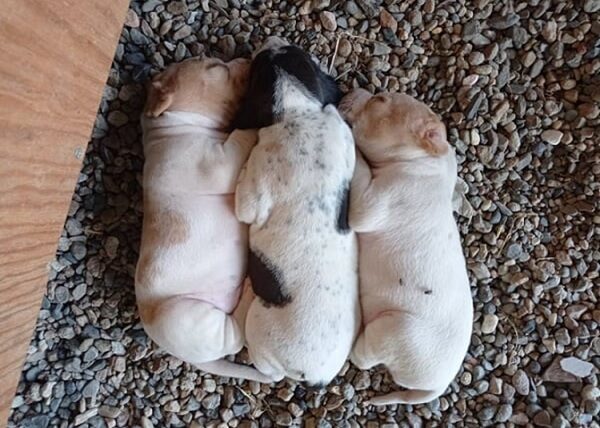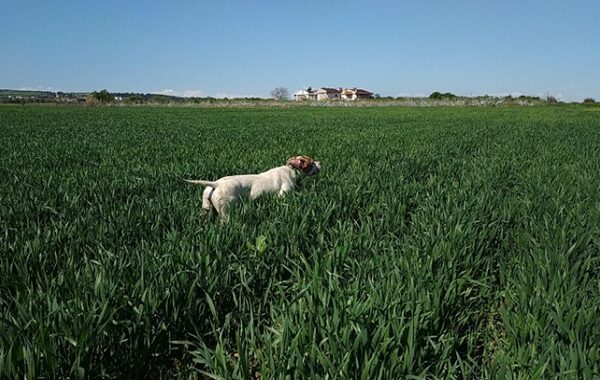The attitude of Orthodox theology towards animals
8 May 2023Orthodox theology maintains an attitude of respect towards animals, as it does towards the whole of creation, recognizing in it the words of God himself which he pronounced when forming it. As Saint Silouan the Athonite taught, people whose hearts have loved the Creator ardently can’t help but burn with compassion for everything created.
We see a similar perception in the teachings and also in the personal behavior of many of the Fathers and Saints of the Church. However, this approach doesn’t lead to dogmatic or idolatrous stances towards creation, animate or inanimate, plants or animals. The Church views creation with respect. People have to ‘guard’ creation, but, at the same time, have to live in it and from it.

Plants and animals serve as sources of food, as aids in our work, and all of them deserve to be accommodated. So, the Saints and Fathers themselves, while expressing their love and respect for nature, neither condemn nor forbid the consumption of meat, fish or any other comestible, nor the use of animals in work. Although we see many instances in the lives of the Saints where they’ve cultivated a special, often wonderful, interaction with animals, they never recognize that the latter have sovereign rights, which would put them on a par with human beings. In general, there’s no Biblical or Patristic tradition to support the extreme views propounded by certain animal welfare or ecological organizations.
Naturally, the fact that the creation is unequal doesn’t mean that moral theology, in Orthodox terms, can accept the mistreatment of animals or cruelty towards them. Abandoning animals on the streets, which results in large numbers of strays; cruel and provocative maltreatment even to the extent of killing them; wretched living conditions for animals destined for food, the way they’re bred and slaughtered, all display irresponsibility and don’t reflect in the slightest the Orthodox ethos as regards the creation.
But the movements which support animal rights go to the other extreme. They not only want to put animals on a par with humans, but often want to displace the latter in order to ensure the rights of the former. In other words, in general, there’s an interest in animals which borders on the excessive. Indeed, there are animal-loving behaviors which approach the limits of perversity. According to extremist animal-lovers, resources which could be used for people who are struggling for survival, especially in times of crisis, belong by right to stray animals, a position they justify by claiming that humans are responsible for their abandonment in the first place. It should also be noted that, because of interventions by animal-lovers’ movements, legislation in many countries has become very strict towards people and excessively supportive towards animals and their rights.
We might say that a sign of the times is the new law in Greece which imposes blanket mandatory sterilization on all controlled pets, as a way of dealing with the chronic problem of strays. This involves the cruel mutilation of animals without any medical necessity. The Panhellenic Association of Veterinarians reacted to this with a statement. But beyond the medical and legal-cum-constitutional problems which clearly exist, questions of a moral, theological and anthropological order also arise. Instead of stomping on the root of wickedness within people- the greed and vanity which lead to irresponsible forms of behavior- society has ended up abusing creation, on the pretence of animal welfare. It’s now sacrificing the bodily integrity of animals with practices which are a reminder of times of totalitarianism. There’s no respect for their natural function, which is an expression of the creative urges which the creator himself instilled in them.

In Western societies in particular, people are going through a period of individualism and isolation. The number of people who end their lives of their own accord is increasing rapidly. Using the company of an animal to fill the gap of living with another person, be it a partner or a friend, is a decades-long practice in the Western world. Animals have been shown to be agents of sociability to such an extent that scientific research has become involved with the issue on many levels. The phenomenon certainly has not a few deep causes which can be subjects of study for the sciences of psychology and sociology.
Naturally, there are also working domesticated animals which assist people in a variety of activities of their life (guarding spaces or herds, guide dogs for the blind, hunting and so on), a relationship which has existed almost since the appearance of humanity on earth. Co-operation between humans and animals is an image of the organic relationship we have with creation, rather than the idealized museum exhibit which, alas, is tending to become increasingly widespread nowadays.
The Christian attitude to animals, as well as our relationship to them, springs from the attitude of Christians towards the whole of creation. Respect and honor for the creation is of profound theological and social significance for the Church. They’re indissolubly linked to the worship and honor of ‘The Creator of all things’ and to a loving relationship with our neighbor, and have a vertical as well as horizontal dimension. There’s no justification for prioritizing dumb* creation over human beings, who are made in the image of God. The true relationship between people and God, as well as with their neighbors, does, however constitute the basis of a healthy relationship between humans and the rest of creation.
* In both senses: ‘unable to speak’; and ‘unable to reason’.
Nikolaos Koios is Associate Professor of Christian Ethics and Bioethics and Director of the Priestly Studies Program at the University Ecclesiastical Academy of Thessaloniki






